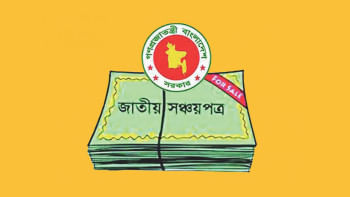Lack of consensus to sink economy
The economy will suffer greatly if the ruling alliance and the opposition fail to reach a consensus over a framework for holding the next parliamentary election, Centre for Policy Dialogue warned yesterday.
"The performance of the economy will depend largely on how we will pass the first two quarters of the next fiscal year. If there is consensus it is okay. But if not, economy will suffer deeply," CPD Executive Director Mustafizur Rahman said at a press briefing at the CPD office in the capital.
The words of caution come at a time when Bangladesh is hit by faltering private investments, sluggish trade, rising default loans, excess liquidity in banks and weakness in economic management, especially in the banking sector.
The CPD yesterday released its review on the performance of economy in fiscal 2012-13.
Political turmoil, hartal and vandalism centring the next polls have already deepened the strain on the economy.
"Such an uncertain environment leaves a negative impact on normal economic trends at a time when we want to accelerate our economic growth," Mustafiz said.
During the year, exports and remittance grew and helped boost foreign exchange reserves and a favourable balance of payments.
There was upward trend in public sector investment and Annual Development Plan implementation that contributed to the country's growth in the outgoing fiscal year, said CPD.
Hartal and political turmoil impacted on economic activities in the last quarter. Instability in politics will affect job creation, economic growth, trade and investments, Mustafiz said.
CPD Distinguished Fellow Debapriya Bhattacharya said, "Political reality and economic needs have given rise to a conflict."
But economic performance has slowed in some areas. Private investments fell to a six-year low, while domestic savings slipped to 10-year low, indicating erosion of purchasing power and real income, he said.
The percentage of bad loans hit the highest in five years, he said.
"There was a lot of encouragement in the economy in the first three years of the present government's tenure. But that inspiration faded afterwards," said Debapriya.
Looking back, the CPD distinguished fellow said economy grew 6 percent on an average in the last four and a half years, and agricultural input distribution was better. Revenue collection also increased and ADP implementation performance improved.
But the time would be remembered for the row between the government and Grameen Bank, the collapse of capital market, corruption and loan scams involving Hallmark and Bismillah Group in the banking sector.
He said no transparency and accountability could be established in the activities of multilevel marketing companies like Destiny.
"We have also lost funds over allegations of corruption in the Padma bridge project during the period."
At the same time, licences for new banks were issued despite a debate over it, and subsidy burden for quick rental power plants got heavier. The government also got into disputes with telecom companies on different issues, he said.
"So, we have both seen success and failure."
On construction of Padma bridge, CPD suggested the government should keep all options open to raise funds for the project, instead of depending only on domestic resources. Domestic financing may increase the government's interest burden, as it may have to borrow from banks.
Domestic mobilisation of funds to construct the bridge will create pressure on other sectors that also need investments, said Debapriya.
"Any person with common sense can easily understand the bridge cannot be constructed by allocating funds year after year. It is also understandable that the bridge cannot be built without foreign currency."
He suggested the government go back to the drawing board to find the best option for raising funds for the project.
"Above all, good governance is necessary whatever the source of financing may be," he said.
On the refinancing scheme of Tk 900 crore for stock market, Debapriya said the government makes up for the losses of individual investors from state exchequer to mask its failure to punish the manipulators and ensure good governance in the capital market.

 For all latest news, follow The Daily Star's Google News channel.
For all latest news, follow The Daily Star's Google News channel. 



Comments